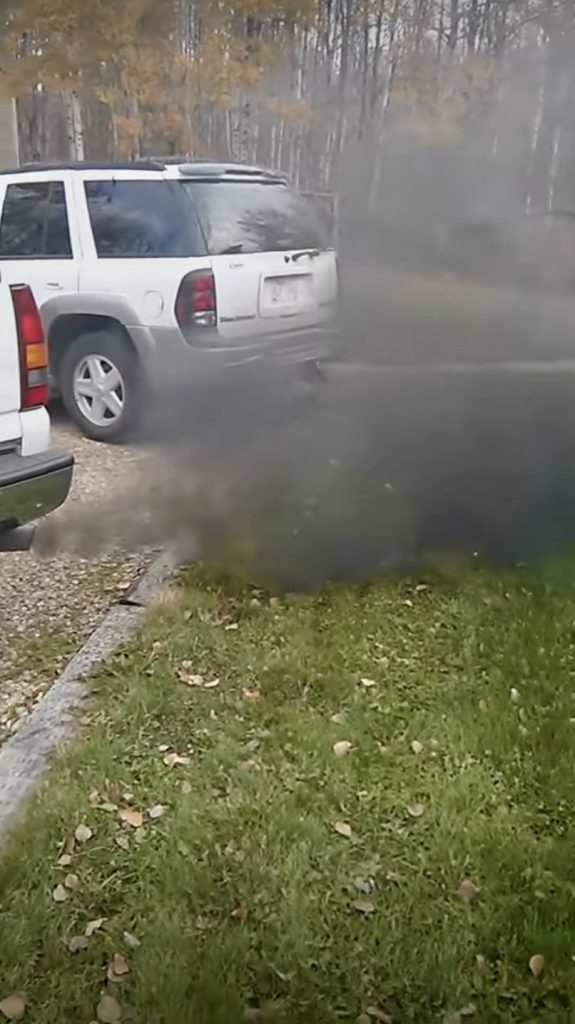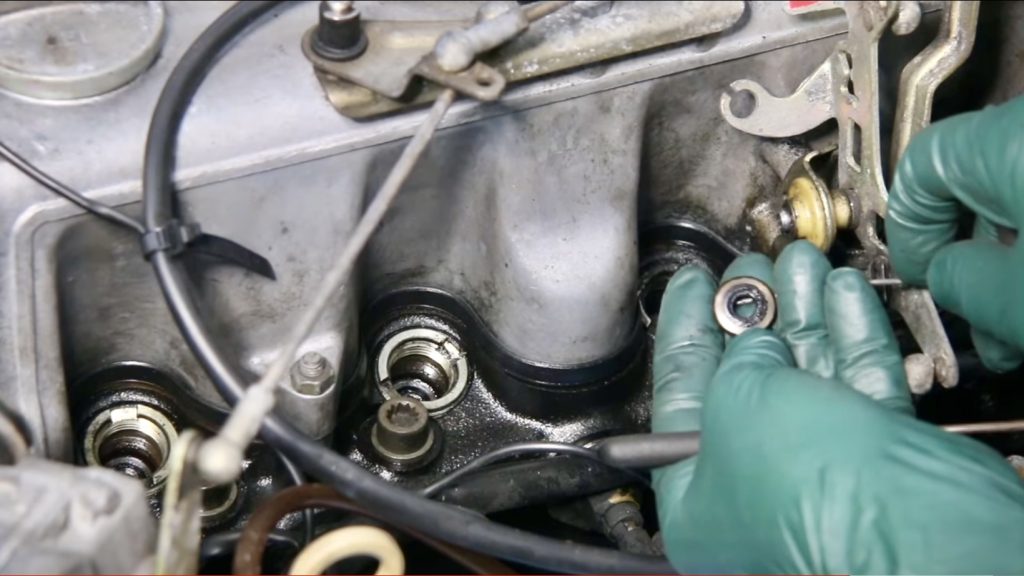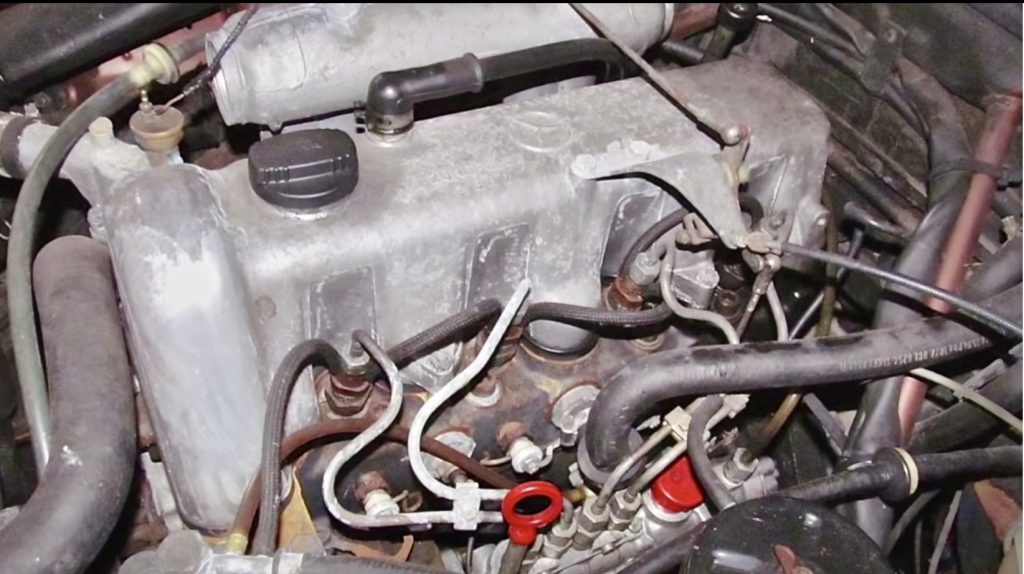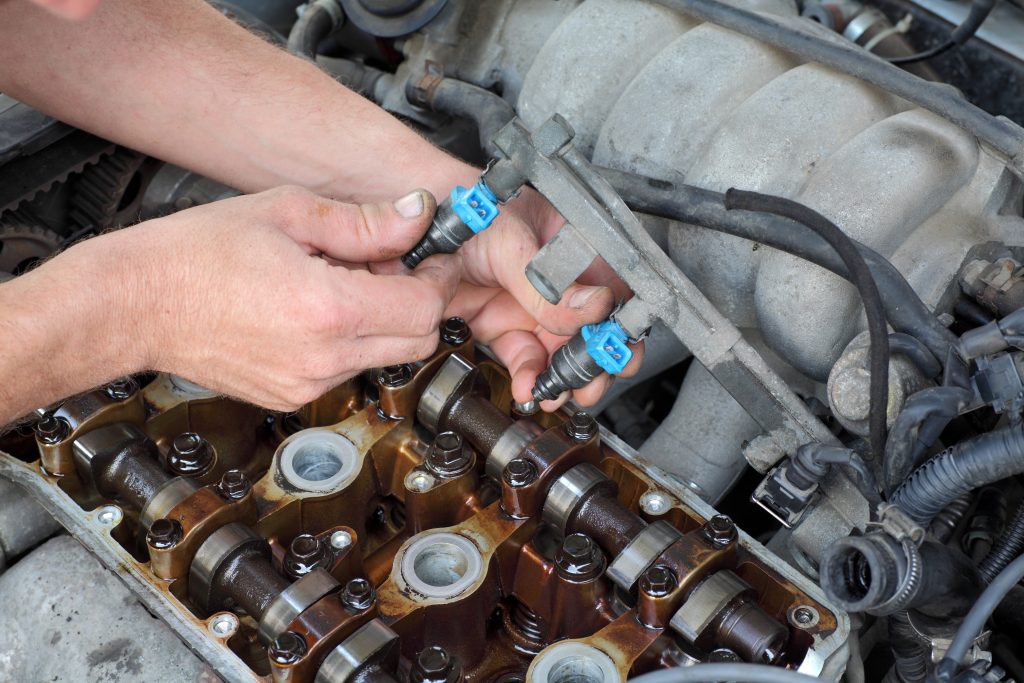Bad Fuel Injector Symptoms And Solutions
Whether this is your first diesel or your latest, you’ll eventually learn the importance of fuel injectors. They’re responsible for delivering fuel to your engine at the precise moment and in the exact amount needed. When they do their job, fuel burns efficiently, and your engine runs smoothly. But when they begin to fail, they will let you know via several different bad fuel injector symptoms.
I recently spoke with Ted Raby of Test Calibration in Mobile, Alabama. They have been in business for almost 50 years and are a complete sales and service company for diesel fuel injectors, turbochargers, and more. They sell new O.E.M. factory turbochargers and remanufactured exchange turbochargers. They also rebuild and calibrate diesel fuel injection pumps and injectors to new O.E.M. factory specs.
Bad Fuel Injector Symptoms
In diesel engines, a bad fuel injector can manifest unique, easily recognizable symptoms. Raby said the three main bad fuel injector symptoms to watch for are:
- Excess smoke, usually thick and black.
- Hard starting.
- Engine misfire on one or more cylinders.
Bad injectors can also produce a loud knocking caused by uneven fuel flow between the cylinders. Reduced fuel efficiency is another red flag, as failing injectors can leak or deliver excessive fuel. These symptoms can alert you to take action to address their problem and extend the life of your diesel engine.

Rough Idling – Rough idling refers to uneven or irregular engine operation when the vehicle is stationary. If your injectors are faulty, they can deliver too much, too little, or an inconsistent spray pattern, leading to imbalanced combustion. Irregular combustion causes excessive vibration and produces unusual noises.
Reduced Fuel Efficiency – If your injectors are not atomizing the fuel properly, larger droplets flow into the cylinder, leading to incomplete combustion. Also, if the injectors are leaking or not closing correctly, excess diesel enters the combustion chamber, resulting in wasted fuel.
Engine Stalling and Hesitation – Stalling occurs when the engine doesn’t receive enough fuel to keep running. Hesitation is also a sign of a problem. Hesitation means the engine doesn’t respond as quickly as it should, which can be dangerous, especially when trying to merge into traffic or overtake another vehicle. If you are experiencing engine stalling or hesitation, have your vehicle diagnosed by a qualified mechanic. Faulty diesel injectors can damage the engine, so it’s vital to have them replaced as soon as possible.
Increased Emissions – Incomplete fuel combustion creates higher levels of hydrocarbons and volatile organic compounds (V.O.C.s) in the exhaust gases, contributing to increased emissions. Faulty injectors may cause an imbalance in the fuel-to-air ratio. A rich mixture in the combustion chamber can produce higher carbon monoxide and particulate matter levels in the exhaust gases. This results in deposits in the combustion chamber or on injector tips, which can interfere with proper fuel atomization and disrupt combustion.
Check Engine Light (C.E.L.) Codes – When diesel injectors malfunction, it often triggers the Check Engine Light (C.E.L.). These irregularities can range from improper fuel spray patterns to incorrect fuel amounts entering the combustion chamber. The activated C.E.L. will store specific error codes, helping technicians identify the injector issue, blockages, or electronic failures. Regularly addressing C.E.L. warnings ensure the longevity and peak performance of your diesel engine, preventing potential damages and maintaining fuel efficiency
Solutions For Bad Fuel Injectors
Fuel Injector Replacement
Replacing faulty injectors in modern diesel engines is an exacting process that involves several steps:
- Diagnosis– The first step involves diagnosing the faulty injectors. Specialized tools are required to read the error codes from the vehicle’s onboard computer.
- Removal– With the engine off, depressurize and disconnect the fuel lines and pump, then remove parts like the intake manifold or other components to access the injectors. The faulty injectors are then carefully detached from the fuel rail and removed from the engine.
- Installation of New Injectors– Precise installation of new injectors ensures all seals and connections are secure to prevent fuel leaks.
- Reassembly and Testing– Replace and fasten any detached engine components and start the engine. Perform a thorough check for leaks and confirm proper installation, then road-test to verify the new injectors are functioning correctly and the engine is responding well.
- Reprogramming– Reprogram the engine control module (E.C.M.) to synchronize with the new injectors, ensuring accurate fuel delivery and optimal engine performance.
- Final Inspection– Perform a final comprehensive inspection to confirm that all the new components function correctly, and that the vehicle meets emission standards.
Remember, the complexity of this process will vary with your vehicle model, so it’s often best handled by a professional technician.
Fuel Injector Cleaning Service
Raby said most injector issues are mechanical, so cleaning may be an option to try first, but it most likely will not fix the problem. Specialized injector cleaning services use high-pressure fluids and ultrasonic processes to deep-clean the injector tips. The injectors are removed from the engine and mounted in a machine, where pressurized cleaning solvents flush out accumulated deposits inside the injectors. After reassembly, calibration adjusts the injectors back into optimal working order.

How To Clean Diesel Fuel Injectors Yourself
Cleaning diesel fuel injectors yourself can be a cost-effective way to maintain your vehicle, though it requires careful attention to detail. Please follow safety procedures, including wearing gloves and eye protection before attempting this procedure.
Materials Needed:
- Fuel Injector Cleaner
- Container
- Wrench set
- Screwdriver
- Rags
- Protective gloves and eyewear
Steps:
- Locate the Injectors- They are along the fuel rail on the engine. Refer to your vehicle’s manual to locate their precise location.
- Depressurize the Fuel System- Disable the fuel pump by removing the corresponding fuse or relay while the engine runs until it stalls. After the engine stalls, turn off the ignition.
- Remove the Injectors- Using a wrench, disconnect the fuel lines from the injectors, unplug the electrical connectors, and unbolt the injectors from the fuel rail. Handle them with care.
- Manual Cleaning– Prepare a container with fuel injector cleaner and submerge the injector tips into the cleaner. Soak as per the cleaner’s instructions (usually several hours). Afterward, use a soft cloth to gently clean off any visible residue from the injectors.
- Ultrasonic Cleaning- An ultrasonic cleaner is the ideal method. Fill the cleaner with the appropriate cleaning solution, place the injectors inside, and run the cleaner per the manufacturer’s instructions.
- Reinstall the Injectors- Once clean, reattach the injectors to the fuel rail and reconnect the fuel lines and electrical connectors. Ensure all connections are secure, then reinstall the fuel pump fuse or relay.
- Test- Turn on the ignition to build pressure and check for leaks without starting the engine. If there’re no leaks, start the engine and monitor the injectors’ performance. Listen for irregularities in idling and acceleration.
Cleaning injectors can solve some performance issues. However, Raby reiterated that severely clogged or damaged injectors might need professional service or replacement. Always refer to your vehicle’s service manual and adhere to safety precautions when performing any maintenance tasks.
The actual process may vary based on your vehicle’s make, model, and year, so please refer to your vehicle’s service manual for instructions and safety warnings.
Fuel Injector FAQs
How to start a car/truck with bad fuel injectors?
If your fuel injectors are failing and the engine is difficult to start, you can use starting fluid to help get it going. Spray some starting fluid or ether into the air intake while cranking the engine. This highly combustible mist should allow the engine to fire and run briefly, even with bad injectors. It’s only a temporary fix, but it might help you get the car running long enough to get to a shop for proper injector service.
Can a bad fuel injector cause a misfire?
Yes, one or more malfunctioning fuel injectors can cause misfires in individual engine cylinders. The injector delivers fuel at the precise moment needed for ignition. If an injector nozzle is clogged or damaged, that cylinder will get insufficient fuel, resulting in a misfire and rough-running engine. Each cylinder’s injector needs to function correctly to avoid misfires.
Can a bad fuel injector damage the engine?
Faulty fuel injectors can allow raw fuel to accumulate in the engine cylinders, which can wash away needed lubricating oil from cylinder walls and pistons. This lack of lubrication causes excessive wear. Bad injectors also cause improper combustion, which can overheat engine components. Prompt action is needed for failing injectors before long-term damage occurs.

What is the average fuel injector replacement cost?
Raby said that due to the wide variety of engines, he could only offer a ballpark figure of $200 – $400 per fuel injector, and the make/model determines the final cost. You can buy replacement injectors from $50 to $100 each, but you’ll need mechanical skills. Injector replacement requires proper tools and knowledge to avoid damage. Raby said that often, they can rebuild injectors rather than install new ones.
How to start a car/truck with bad fuel injectors?
Starting a diesel vehicle with faulty fuel injectors can be challenging and is typically not recommended. However, if it’s an emergency, here are some steps you can try, but they come with risks:
- Ensure the battery is fully charged. Diesel engines require more power to start compared to gasoline engines.
- While it can be risky due to the higher compression ratios in diesel engines, in emergencies, a small amount of ether-based starting fluid sprayed directly into the air intake might help start a diesel engine with bad injectors. Use extreme caution, and only as a last resort, as it can cause severe engine damage.
- Gently tapping the fuel injectors with a tool’s handle might help free up a stuck injector, allowing some fuel to pass and facilitating the start.
- If possible, temporarily bypassing the faulty injector might help start the engine, allowing the vehicle to relocate to a suitable location for repair.
Remember, these methods are temporary solutions, and driving with defective fuel injectors can lead to severe engine damage, increased emissions, and poor performance and fuel efficiency. Therefore, the vehicle should be promptly inspected and repaired by a professional mechanic specializing in diesel engines.
Can a bad fuel injector cause a misfire?
Yes, a bad fuel injector can indeed cause a misfire. If a fuel injector is clogged or malfunctioning, it can disrupt the precise amount of fuel going to the combustion chamber. This disruption can lead to an imbalanced air-fuel mixture, causing the cylinder to misfire during combustion.
Can a bad fuel injector damage the engine?
A bad fuel injector can cause extensive damage to the engine. Faulty injectors can either leak, leading to fuel dilution in the oil, or restrict fuel flow, causing a lean air-fuel mixture. A lean fuel mix can lead to engine overheating and detonation, damaging pistons, valves, and other internal components. Conversely, a leaking injector can wash away the lubricating oil film in the cylinder, causing increased friction and wear that can result in premature engine failure.
What is the average fuel injector replacement cost?
The replacement cost for diesel fuel injectors can vary significantly, depending on the vehicle’s make, model, and year. According to Raby, the price for diesel injectors can range from $200 to $1,000 per injector. Labor costs can vary from $50 to $150 per hour based on the mechanic’s rates and the replacement process.
Replacing diesel injectors can be expensive, but addressing these issues can avoid more extensive and costly damage to the engine and other components. Always seek a precise estimate based on your specific vehicle from a professional, like Ted Raby at Test Calibration or your vehicle’s manufacturer.
Final Thoughts On Bad Fuel Injectors
Hopefully, you won’t experience any of the bad fuel injector symptoms listed above. But if you do, call the folks at Test Calibration to answer your questions or set up an appointment to zero in on your diesel problem. They are your one stop shop for all your diesel fuel injector and fuel pump needs.




